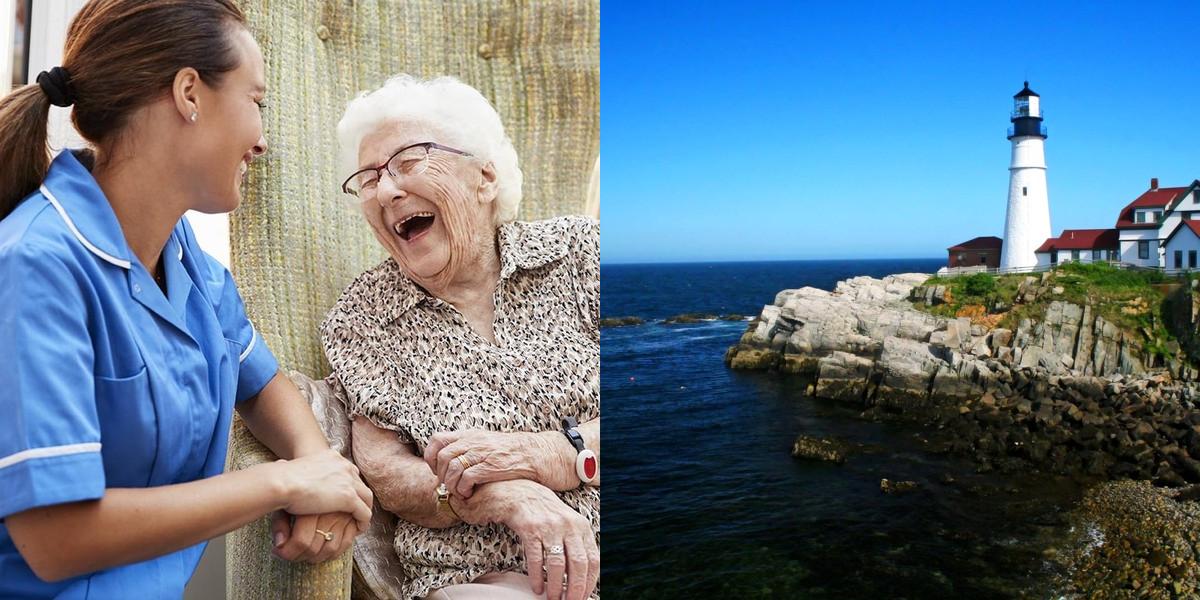How to Become a Caregiver in Maine (2025)

If you're looking for a fast and meaningful way to enter Maine's healthcare field, becoming a certified caregiver—officially known as a Personal Support Specialist (PSS)—is a direct path to a stable and rewarding job. Maine's healthcare sector employs over 15,000 of these essential professionals who earn a median salary of $37,500 per year, according to the U.S. Bureau of Labor Statistics. This guide provides the definitive 5-step process for navigating Maine's specific training and certification requirements to launch your career helping others in your community.
4. Apply for Caregiver Jobs
Once your PSS certification is active on the state registry, you are ready to start working. You can explore the types of skills and knowledge employers look for in this role on MyNextMove.org.
How to Get a Caregiver Job in Maine?
Your training provider is often your best resource, as many home care agencies that offer the PSS course hire their successful graduates directly. You can also search for "Personal Support Specialist" or "PSS" on job boards like Indeed or apply directly to home health agencies in your local area. Highlight your new PSS certification on your resume and emphasize your compassion and reliability during interviews.
5. Pursue Advanced Education
Your PSS certificate is an excellent starting point for a healthcare career. Many PSS professionals continue their education to gain more skills and increase their earning potential. Common next steps include becoming a Certified Residential Medication Aide (CRMA), a Certified Nursing Assistant (CNA), or a Licensed Practical Nurse (LPN).
What are the Requirements to Become a Caregiver in Maine?
To work as a certified PSS for a licensed home care agency in Maine, you must meet the specific requirements set by the state.
- Age and Education: Be at least 18 years old and have a high school diploma or GED.
- Background Check: You must pass a comprehensive criminal background check.
- Approved Training: You must successfully complete a state-approved 50-hour PSS training program.
- State Registry: You must be listed on the Maine Registry of Certified Nursing Assistants & Direct Care Workers to be officially certified.
Where to Find Caregiver Classes in Maine?
Finding a state-approved PSS program is the essential first step in your career, and Dreambound is designed to make that process simple. Dreambound's platform allows you to search, filter, and connect with a vast network of career and technical education partners offering PSS programs across Maine. You can compare training providers based on cost, schedules, and location to find the perfect fit for your goals. Dreambound is completely free for you to use, and many partner schools offer payment plans or financial aid for those who qualify.
Career Paths and Opportunities after Becoming a Caregiver
As a PSS, you have several avenues for growth within the healthcare sector:
- Certified Residential Medication Aide (CRMA): With a short, 40-hour course, you can become certified to administer medications in assisted living and residential care settings.
- Certified Nursing Assistant (CNA): Earning your CNA certification allows you to work in a wider variety of settings, including hospitals and skilled nursing facilities, and perform a broader range of clinical tasks.
- Home Health Aide (HHA): With additional training, you can work for Medicare-certified agencies and perform more health-related tasks.
- Licensed Nurse (LPN/RN): The experience you gain as a PSS provides a strong foundation for pursuing a degree in nursing.
Final Thoughts
Becoming a caregiver in Maine can be a rewarding and fulfilling career choice. By meeting the necessary requirements, obtaining your certification, and exploring job opportunities, you can make a positive impact on the lives of those in need of assistance and support.
Are you thinking about a job change or wanting to learn more about different career paths? Feel free to check out these additional articles:

Athena is Co-founder and CEO of Dreambound.



